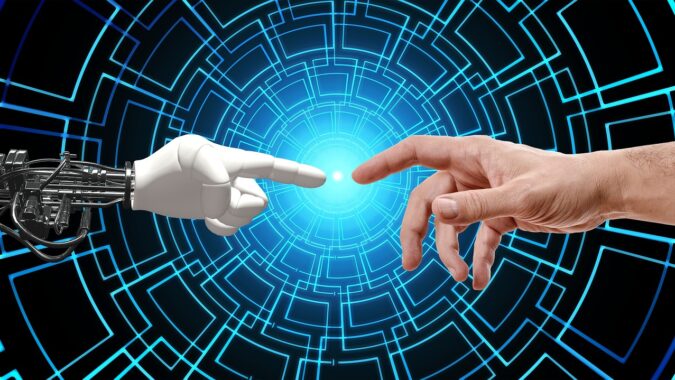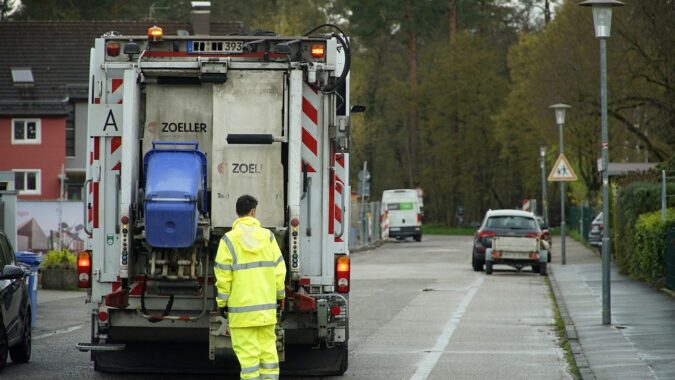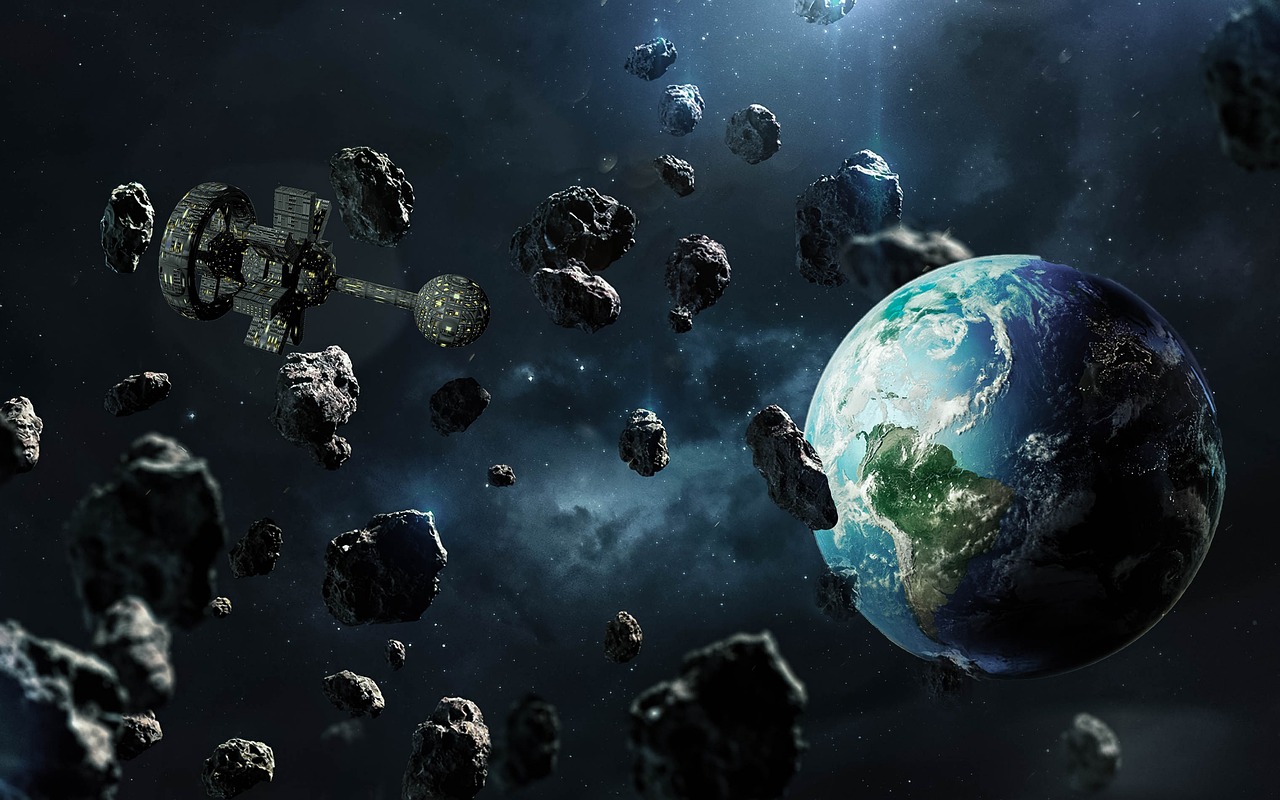How to Dispose of an Ozempic Pen
Ozempic pen use is rising. Safe disposal is vital to protect health and the environment. Learn how to dispose of Ozempic and other GLP-1 pens in this guide.
Reducing waste production is a key challenge for every country to tackle pollution and climate change. Global waste generation was 2.24 billion tons in 2020, and is predicted to increase to 3.88 billion tons by 2050, according to the World Bank. Homes and businesses can play their part to cut waste production at the source, but advancements in artificial intelligence (AI) are helping across the board.
Waste management involves many processes, from production and storage to transportation, inspection, and disposal. AI is already essential for lots of data processing and behind the scenes work around waste management. It’s now being introduced for more applications that are much more visible and businesses can use to reduce waste, save time, and money.
There are many innovative ways AI benefits the waste management sector and how it can help your business reduce its waste production levels and the associated costs.

Around 17% of food produced globally is wasted according to the UN. The food service industry accounts for about 5% of this, so efforts are ongoing to reduce this amount. For example, the average restaurant in The Netherlands throws away around 10,000kg of edible food waste every year.
Trials using cameras and AI software developed by Orbisk are in place within some professional kitchens to cut down on the amount of waste food restaurants, cafes, and takeouts produce. This places cameras above food waste bins in the kitchen. They use AI image recognition technology to identify the type and amount of food waste, its level of processing (prepared, whole, or cutting waste), the time of disposal and reason for disposal.
There’s no need for extra space in the kitchen as cameras are fit to existing food waste bins. The data goes to the Cloud automatically, which restaurant managers, chefs, and other kitchen workers can later access and interpret to see where they waste food and to develop strategies to cut down on this.
Currently there’s a 24-hour turnaround for data to reach the user, but the aim is for instant turnaround as the technology advances. Orbisk claims its cameras and AI technology can help kitchens reduce their food waste by 50%, so it could have a significant impact on reducing commercial kitchen food waste.
One of the big challenges for waste management and recycling facilities is waste getting mixed up. Just one wrong piece of rubbish can contaminate an entire load and prevent recycling. AI-powered computer vision software developed by Greyparrot tracks 32 billion items of waste every year to help improve the efficiency of waste managers.
After all, as AI can recognise the complex details of human faces, surely identifying your waste should be a breeze? Unlike human faces, the likes of chocolate bar wrappers and crisp packets are pretty much all the same. The technology works as cameras assess waste on a conveyor belt and identify different waste types, faster and more accurately than the human eye.
It provides composition information and analytics about the waste, helping facilities spot waste in the wrong streams and remove it. This can eliminate errors, highlight inefficiencies when sorting waste, and ultimately boost the recycling rates at waste management facilities by ensuring as much recyclable rubbish as possible is processed properly.
Waste management companies work to determine the most efficient routes to collect garbage from homes and businesses. This saves them money on fuel, which has a positive environmental effect too, and cuts the time it takes so they can make more pickups in a day. AI offers solutions to accurately map the areas that a waste management company covers, which can use historical data and new information to develop the most efficient routes.
Research has found that using AI could reduce transportation distances by up to 36.8% for waste logistics. This could make time savings of up to 28.22%, which leads to better efficiencies and may cut costs for waste collections by up to 13.35%.
Holidays, seasonal events, and traffic regularly impact waste collections, leading to longer and slower routes. AI integration can automatically generate route plans for trucks while they’re out on the road, making changes in real time to avoid traffic jams, road closures, and avoid delays where possible.

The development of ‘intelligent’ rubbish bins uses the power of AI to inform waste management companies when bins are full. Through a variety of smart sensors and IoT technology (Internet of Things) linked up to software used by waste management firms it can improve the efficiency of collections.
Coupled with route planning technology this can optimise waste collections for homes and businesses, ensuring bins are only emptied when full. It prevents waste overflowing and keeps sites hygienic. This saves on time, fuel, and money wasted by trucks to collect and empty half-full bins, maximising the value for money homes and businesses get for their waste management.
Smart sensors inside bins can also track temperature and movements, as well as the fill level. If the temperature gets too high or there’s unexpected movement, it could be due to fire or potential theft. This adds an extra layer of defence to protect the trash and ensure it’s sent for recycling and responsible disposal.
It’s not just rubbish on planet earth that AI helps to combat, it’s now got its sights set on the stars (kind of). The European Space Agency estimates there are more than 170 million bits of debris in space larger than 1mm, which could harm an operational spacecraft. This includes natural meteoroid and human-made orbital debris, such as mission-related debris, spacecraft fragmentation, and nonfunctional spacecraft.
All this waste in space could be dangerous for astronauts navigating orbit, communication networks and weather satellites, and future missions. AI is now helping spearhead a space clean-up. The Department of Defense’s global Space Surveillance Network (SSN) uses sensors to track around 27,000 large bits of space junk, but development is ongoing to use recognition technology to identify smaller debris in space.
Start-ups are innovating to come up with solutions that go beyond just detecting waste in space too. StartRocket is working on a foam debris catcher. It delivers a small satellite into orbit that releases foam as it comes close to a cloud of debris in space, which absorbs the waste. Then it falls from orbit, destroying the debris as it burns up in the atmosphere.
Automating various processes of waste management with AI capabilities can reduce the amount of waste we create and ensure responsible disposal in many ways. Future developments and innovations could hopefully help make waste reduction even easier for homes and businesses to have a positive environmental impact.

Ozempic pen use is rising. Safe disposal is vital to protect health and the environment. Learn how to dispose of Ozempic and other GLP-1 pens in this guide.
Simpler Recycling regulations have raised many questions for businesses in England. Find expert answers to FAQs with this Simpler Recycling guidance.
Not all rubbish put in your recycling bin at home gets recycled. Discover which regions in the UK have the highest and lowest recycling rejection rates.
Data reveals that Batu Caves is the most littered tourist attraction in the world. See what other popular destinations are also home to lots of rubbish.
Get a fast FREE quote for your waste collection 0800 211 83 90